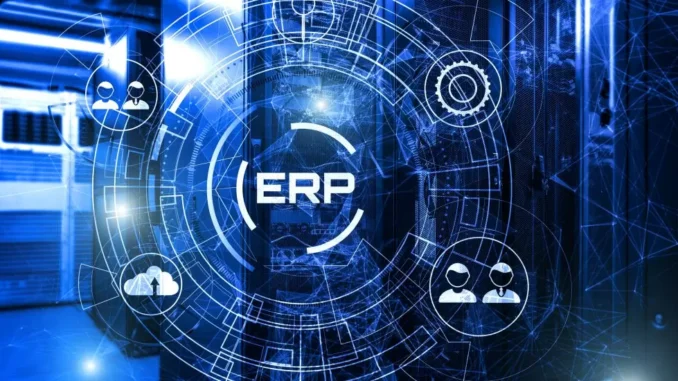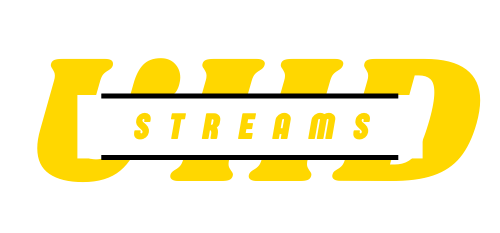

In today’s competitive business environment, efficiency is key to staying ahead. Companies of all sizes face the challenge of managing various departments, processes, and operations. This is where Enterprise Resource Planning (ERP) software comes in. ERP software centralizes business operations, streamlining workflows, improving efficiency, and reducing errors. This post will explore how ERP software helps businesses optimize their operations, enhance productivity, and drive growth.
What is ERP Software?
Enterprise Resource Planning (ERP) software is an integrated system that allows businesses to manage and automate core functions such as accounting, procurement, inventory management, sales, human resources, and customer relationship management (CRM). By centralizing these processes into a single platform, ERP software improves data accuracy, reduces manual work, and enables businesses to make informed decisions.
Benefits of Streamlining Operations with ERP Software
1. Improved Efficiency and Productivity
One of the main advantages of ERP software is its ability to streamline business processes. It automates routine tasks, reduces the need for manual data entry, and eliminates the inefficiencies of disconnected systems. By consolidating all critical operations into a single platform, employees can work more efficiently, focus on strategic tasks, and make faster decisions.
2. Real-Time Data and Insights
ERP software provides real-time data across departments, giving businesses a comprehensive view of their operations. This centralized access to information enables managers to make informed decisions based on up-to-date insights. For example, sales teams can access inventory levels in real time, while finance teams can track cash flow and expenses instantly, helping businesses respond to changing conditions quickly.
3. Enhanced Collaboration Across Departments
In many businesses, departments work in silos, leading to communication breakdowns and inefficiencies. ERP software fosters collaboration by creating a unified system where all departments can access and share data. This transparency leads to better communication, smoother workflows, and more effective collaboration between teams like sales, production, HR, and finance.
4. Cost Savings and Better Resource Management
ERP systems help businesses identify and eliminate inefficiencies, such as overstocking inventory or underutilizing staff. By providing a clear picture of resource allocation, businesses can optimize their operations and reduce costs. ERP software also improves supply chain management, helping businesses better plan procurement and reduce waste, leading to cost savings.
Key Features of ERP Software
1. Financial Management
ERP software includes financial management tools that allow businesses to track and manage their finances. These tools help automate accounting processes, generate financial reports, and ensure compliance with tax regulations. By automating financial tasks, businesses can reduce errors, improve accuracy, and gain a better understanding of their financial health.
2. Inventory and Supply Chain Management
Inventory management is a crucial part of business operations, particularly for businesses in manufacturing and retail. ERP software helps businesses track inventory levels, manage orders, and optimize supply chain processes. By providing real-time data on inventory, businesses can avoid stockouts or excess inventory, improving efficiency and reducing costs.
3. Human Resources and Payroll Management
ERP systems typically include HR modules that automate tasks such as employee onboarding, payroll processing, and performance management. These tools streamline HR operations, reduce administrative work, and ensure accurate and timely payroll processing. ERP software also allows HR teams to track employee data and performance metrics, supporting better decision-making and workforce planning.
4. Customer Relationship Management (CRM)
An integrated CRM system within ERP software helps businesses manage customer interactions and data in one place. It allows sales and support teams to track customer inquiries, manage leads, and provide better service. By centralizing customer data, businesses can improve customer relationships, identify sales opportunities, and deliver personalized experiences.
5. Reporting and Analytics
ERP software provides powerful reporting and analytics tools that allow businesses to generate detailed reports on various aspects of their operations. These reports help business leaders track performance, identify trends, and make data-driven decisions. ERP software can create financial reports, sales forecasts, inventory levels, and employee productivity metrics—all in one place.
How ERP Software Streamlines Specific Business Operations
1. Streamlining Sales and Order Processing
ERP software can automate and streamline the sales order process from start to finish. When a customer places an order, the system automatically checks inventory levels, generates an invoice, and tracks the shipment. This automation reduces the time spent on order processing, minimizes errors, and ensures faster delivery times, improving customer satisfaction.
2. Enhancing Procurement and Supplier Management
Managing relationships with suppliers can be complex. ERP software simplifies procurement by automating purchase orders, tracking supplier performance, and managing supplier relationships. Businesses can analyze supplier data to negotiate better contracts, improve procurement strategies, and ensure timely delivery of goods and services.
3. Optimizing Production and Manufacturing Processes
For manufacturing companies, ERP software can automate and optimize production schedules, track raw material usage, and monitor production progress. The software helps companies reduce waste, minimize downtime, and improve production efficiency. By integrating with inventory and supply chain management, ERP systems ensure that materials are available when needed, preventing production delays.
How to Choose the Right ERP Software for Your Business
1. Define Your Business Needs
Before selecting an ERP system, identify the key processes you want to improve or streamline. Consider the size of your business, the industry you’re in, and the specific functions you want to automate (such as inventory management, financial tracking, or HR). A clear understanding of your business needs will help you choose the right ERP software.
2. Evaluate ERP Vendors
There are many ERP software vendors in the market, each offering different features, pricing, and scalability. Compare different ERP solutions to find one that fits your business requirements. Look for reviews, case studies, and demonstrations to evaluate how the system performs in real-world scenarios.
3. Consider Scalability and Customization
As your business grows, your ERP needs may change. Choose an ERP system that is scalable and can grow with your business. Ensure that the system allows for customization so that it can be tailored to your specific workflows, industries, and business processes.
4. Prioritize User-Friendliness
An ERP system should be easy for your employees to use. Choose a system that has an intuitive interface and is simple to navigate. Look for vendors that offer training and support to ensure a smooth transition and minimize disruption during implementation.
5. Consider Integration with Existing Systems
If your business already uses certain software for tasks like accounting or customer management, ensure that your ERP system integrates well with these tools. Integration capabilities will make it easier to centralize your data and avoid duplication of efforts.
Conclusion
Streamlining business operations with ERP software is a powerful way to improve efficiency, reduce costs, and enhance collaboration across departments. By automating key processes, providing real-time data, and improving resource management, ERP software helps businesses stay agile and competitive. Whether you’re managing financials, inventory, HR, or customer relationships, an ERP system integrates everything into one platform, making it easier for your team to work together and make informed decisions.


Leave a Reply